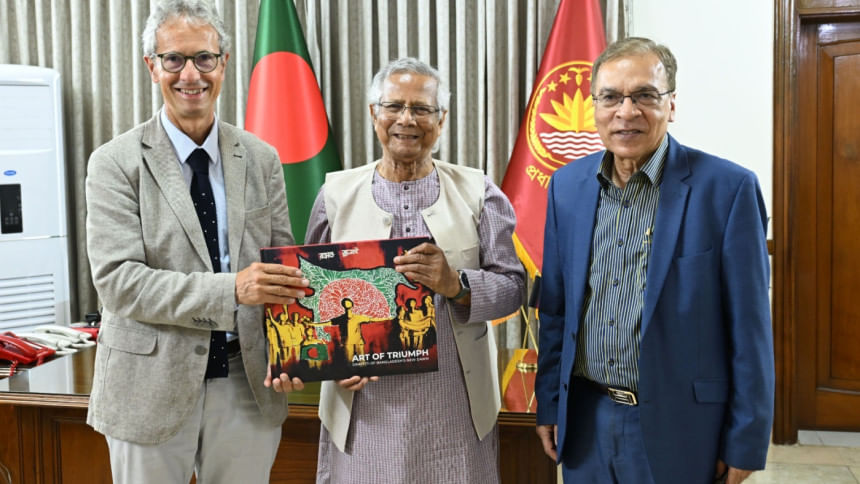Global laws must tighten to stop stolen wealth flow
Chief Adviser Muhammad Yunus has called for stricter international legal frameworks to prevent the laundering of billions of dollars in stolen wealth to offshore tax havens and developed nations.
“Most of the time we know where this stolen money is coming from. Yet, we accept it as a genuine transfer with no initiative to taking any action,” he said during a meeting with Transparency International Chair François Valerian at the state guesthouse Jamuna.
The chief adviser said the existing global financial system has failed to prevent the transfer of tens of billions of dollars from countries in the Global South to offshore safe havens and many developed countries where stolen assets are welcomed and legalised by enablers, CA’s Press Wing said in a statement.
“Sixteen billion dollars were annually siphoned off from Bangladesh during the autocratic regime,” he noted.
Yunus sharply criticised international banking and financial rules that “make it easy” for looted money to be parked in places like the offshore islands and many rich countries.
Valerian commended the interim government’s efforts to recover stolen assets but stressed the need for more effective “international cooperation” and stronger financial regulations to stop money laundering.
“We need stronger international regulations and better enforcement,” Valerian said.
The chief adviser also condemned the “double standards” of some financial institutions for knowingly holding illicit funds.
Yunus urged TI to amplify its voice and help convene an international forum to enact binding international laws to stop stolen billions from finding safe havens.
Iftekharuzzaman, head of TI Bangladesh, said joint advocacy by the Transparency International Bangladesh (TIB) and UK chapter of TI had contributed to freezing properties acquired by associates of ousted prime minister Sheikh Hasina.
Lamiya Morshed, senior secretary and coordinator of SDG affairs, was also present at the meeting.
LondonGBDESK//



Comments are closed.